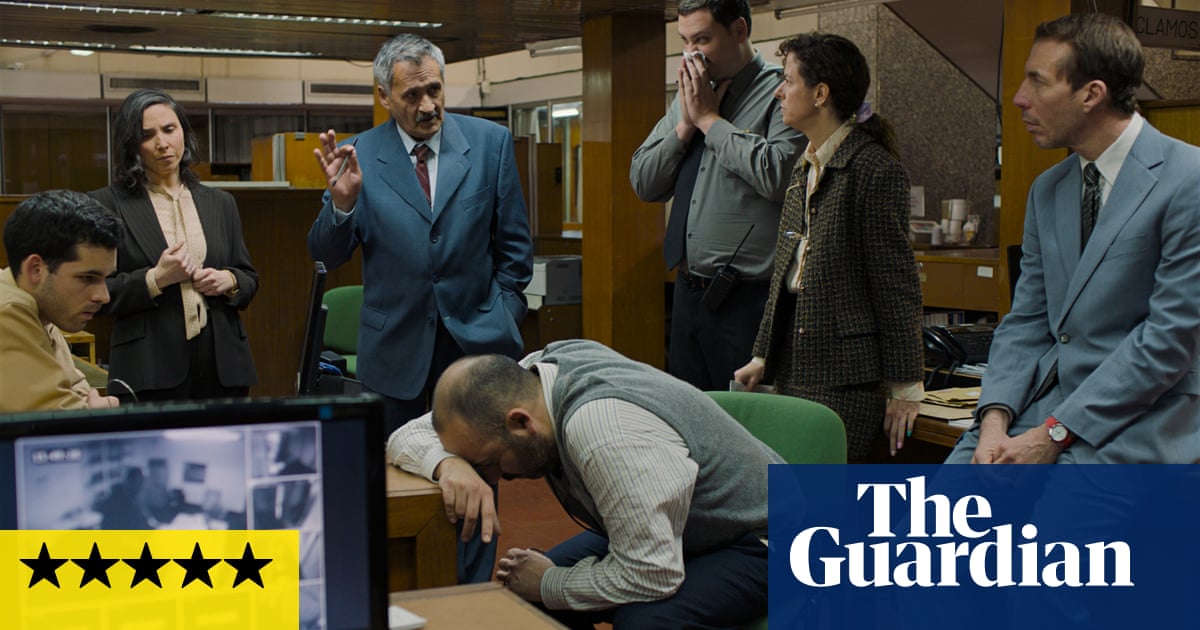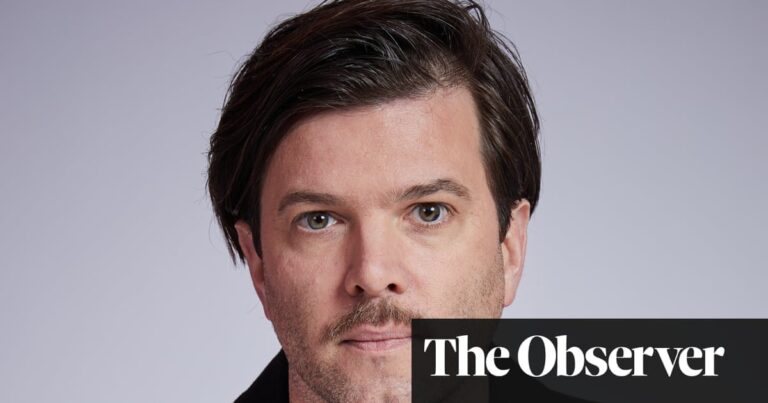
V
Very few movies will leave you wondering, “What just happened?” at the end, and even wondering “What is happening right now?” throughout. This is exactly what I found myself exclaiming during this incredibly peculiar, completely unique, captivating and fantastical tale about a bank robbery in Buenos Aires, directed by Rodrigo Moreno from Argentina. If Pedro Almodóvar and Eric Rohmer joined forces to create a long-winded heist film, it would possibly resemble this, but the film’s waywardness makes it nearly impossible to categorize it into any specific genre.
The setting is a bank in the city, where Daniel Elías (playing the character of Moran) has been working without joy for many years as a cashier. Due to his years of service and evident monotony, he is trusted with the task of moving large sums of money from the cash registers to the safe. However, Moran discovers that he can easily transfer large amounts into the strongboxes located in cabinets behind the customer area and then discreetly take them home in a simple backpack. To carry out this plan, Moran meets with his similarly uneventful colleague Esteban Bigliardi (playing the character of Román) at a bar and calmly presents him with an offer – dumping a backpack overflowing with cash at his feet. Moran proposes that he will turn himself in to the police, confess to the crime, and serve a short sentence of three-and-a-half years while Román takes care of the money. After that, they will share the profits and leave behind their monotonous jobs for good. However, Moran warns Román that if he informs the police, he will reveal that they were both involved. Feeling shocked and unsure, Román reluctantly agrees and takes the bag of money home to hide it in his small apartment which he shares with his girlfriend, a music teacher. This marks the beginning of his new secret life of crime.
However, there are additional plot threads that branch and divide in a surreal manner. The characters Moran and Román (whose anagrammed names hint at parallel universes and coincidences that they are unaware of) have a ruthless boss named Del Toro at the bank, portrayed by experienced Argentinian actor Germán De Silva. While in prison, Moran is tormented by a gang leader nicknamed Garrincha, also portrayed by Germán De Silva.
During his time in jail, Moran informs Román that he has concealed a sum of money by a stream located in the secluded area of Alpa Corral in Córdoba province. He advises Román to retrieve it. However, the plot of the film takes a turn into a comedic setting when Román’s focus is pulled away from his risky task and instead falls for a woman in the town, Norma (Margarita Molfino), who owns a small farm there. He also becomes involved in assisting a friend with a film project in the region. The story takes a surprising turn when another unusual cosmic twist is introduced.
Initially, one may question the feasibility of certain actions and inconsistencies in the plot: would a bank robber truly rely on such a brief sentence when the stolen money had not been retrieved? However, these realistic concerns are not the main focus here. This deadpan comedy confidently follows its own unique and eccentric storyline, and the entire heist concept is turned on its head by the casually nonchalant manner in which the robbery is executed. The mix of seriousness and humor in this movie should be savored, much like a lesser-known fortified wine, and there is an alluring quality in this unlikely adventure. It reminds us that bank employees, just like other people we encounter briefly and without much interest, have complex and vivid inner lives, and possess the ability to artistically redefine their own identities. This film has the potential to become a cult classic.
Source: theguardian.com


















